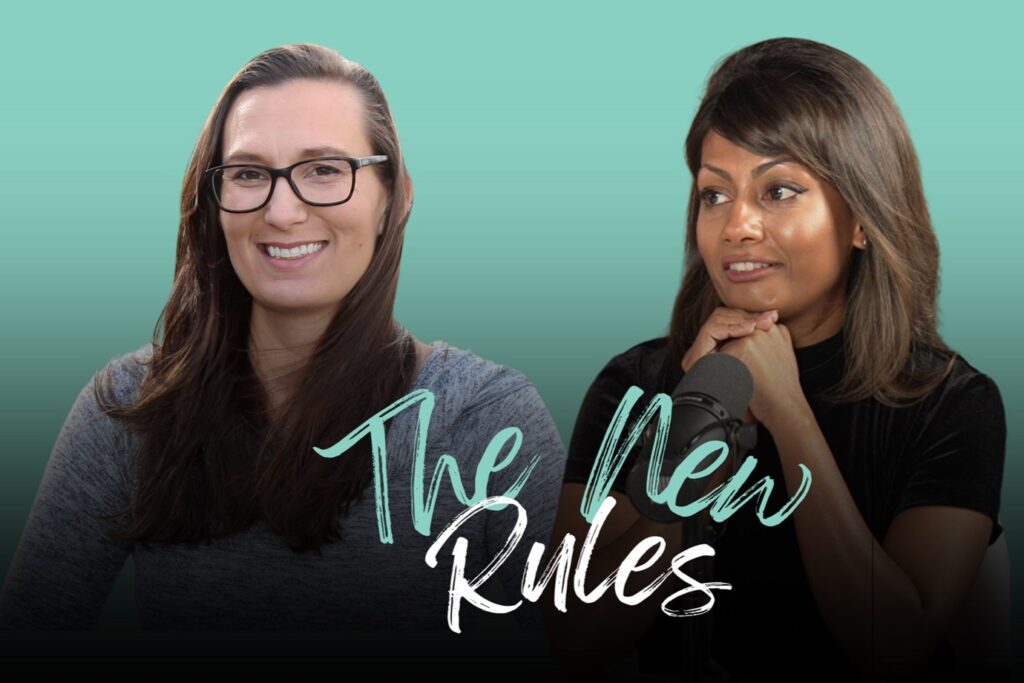At the 2000 Sydney Olympics, women only made up 38 per cent of athletes.
Now, for the first time in history, women will make up 50 per cent of all athletes. That’s over 5000 women representing different nations around the world.
For Dr Mary Woessner, a researcher at Victoria University, milestones like this in women’s sport can’t come fast enough.
“It’s been decades in the making, and we’ve come a long way for sure,” Dr Woessner tells the Dinushi Dias on the first episode of Women’s Agenda’s The New Rules podcast, out today.
Women’s Agenda is proud to be launching The New Rules podcast, going behind the scenes with athletes, industry executives and commentators to look at how women are changing the sporting landscape, here in Australia and globally.
“[Women’s sports are] getting a lot more attention. The Matilda’s Effect [at the] World Cup was incredible in Australia. And you’re starting to see hints of that with the Caitlin Clark effect in the USA,” Dr Woessner says.
“So I’m seeing these kinds of mainstream women athletes getting a stage and platform where they’re not just women and girls that are fans, but they’re men as well and boys. So I think in some ways, absolutely it’s going mainstream. And equal prizes are being considered at all the national tournaments.”
While Dr Woessner sees “some really great structural changes that are occurring”, she says we haven’t reached the finish line just yet.
“There’s still some underlying things that we need to address broadly as a society if we really want to make sure that these spaces are inclusive and safe for everyone.”
Athlete safety and wellbeing
Much of Dr Woessner’s research focuses on safety and well-being of athletes across the elite and community sports sector in Australia.
“When we look at [safety and wellbeing] issues, we think about gender equity, but we [should also] understand that a lot of the drivers for gender inequity can be experiences of violence in sport,” says Dr Woessner.
Examples of this violence can include interpersonal violence between two athletes, coaches shouting excessively at children or players and coercing athletes to play when they’re injured. At the national level, this violence can be glorified when elite athletes play through injury or pain.
And for women athletes in particular, cyber abuse and bullying online are forms of violence that they’re often forced to navigate.
“It’s not just about creating a space for women athletes to perform. It’s about creating a space that is safe. And it’s not just about getting women and girls on the field in community sport,” she says.
“It’s keeping them on the field and making them feel like they belong and they have space in that.”
At the Olympics this year, the first ever nursery is a big step in making athlete parents feel as though they belong. And the gender equal nature of this year’s Games will have a significant long-term effect as well, according to Dr Mary Woessner.
“It’s not just in the athletes,” she adds. “There’s also been a lot of progress in terms of management and organisation or positions.”
“We’ve seen a lot more women elevated to those sort of high profile positions within the Olympics. And we’re seeing– not just the change in terms of athletes– but also in the organisational structures.”
To hear more of the conversation with Dr Mary Woessner on ‘Why the Olympics is making history this year’, check out the first episode of Women’s Agenda’s The New Rules podcast. You can find it below, or on Apple Podcasts and Spotify.

